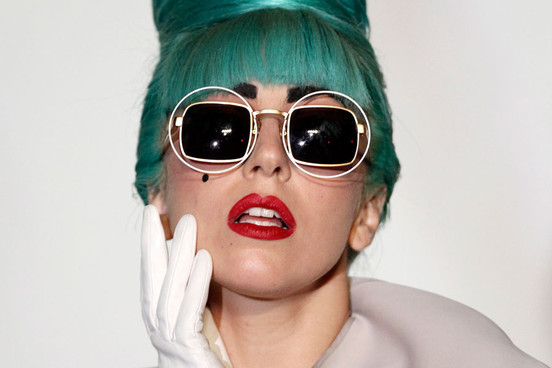(If only we could have that closure about Lady Gaga.)
Mark Twain's Huckleberry Finn follows this structure as Huck experiences a paradigm shift by coming to terms with his own beliefs and exercising autonomy from his society. In the beginning of the novel, we pick up with Huck where we left him in Tom Sawyer. His life with the Widow is comfortable, secure, and "sivilized". In fact, Huck reports, "At first I hated the school, but by and by I got so I could stand it...I was getting used to the widow's ways, too, they warn't so raspy on me...I like the old ways best, but I was getting so I liked the new ones, too, a little bit. The widow said I was coming along slow but sure, and doing very satisfactory (p. 27)".
(Looks comfortable to me.)
Huck is still a young boy, however, and loves to have fun with the other kids and to lie and spin stories for his own amusement. He rarely thinks about the consequences of his actions and fails to see the impact it has on others. The first signal of change in Huck, however, is after he plays a prank on Jim by making him believe he was dreaming, "It was fifteen minutes before I could work myself up to go and humble myself to a nigger--but I done it, and I warn't ever sorry for it afterwards, neither. I didn't do him no more mean tricks, and I wouldn't done that one if I'd a knowed it would make him feel that way (p. 95)". This shows a remarkable sense of empathy and responsibility, especially considering the fact that Jim is a common slave that may have been considered mere property at this time in history.
In chapter XXIV, Huck witnesses the Duke and King commit egregious fraud by lying about their identities to a family mourning the loss of a loved one. He says, "If they warn't the beatenest lot, them two frauds, that ever I struck. Well, the men gathered around, and sympathized with them, and said all sorts of kind thins to tem, and carried their carpet bags up a hill for them, and let them lean on them and cry, and told the king all about his brother's last moments, and the king he told it all over again on his hands to the duke, and both of them took on about that dead tanner like they'd lost the twelve disciples. Well, if I ever struck anything like it, I'm a nigger. It was enough to make a body ashamed of the human race (p.175-76)". Pretending to be someone else is a tactic Huck has used frequently up until this point (and even after). How profound, then, that Huck considers their actions enough to make him "ashamed of the human race" considering the fact that they are white men. Clearly, we are able to see that Huck is beginning to form moral ideals that transcend rank and color.
(Maybe I read the wrong version.)
The most touching moment of Huckleberry Finn is in chapter XXXI. Huck debates whether to rescue Jim or to turn him back over to Miss Watson. In Huck's society, Jim is technically an object of monetary value, and so it would be shameful and an act of robbery to set him free. However, on page 223, he reaches a decision, "I was trembling, because I'd got to decide, forever, betwixt two things, and I knowed it. I studied a minute, sort of holding my breath, and then says to myself: 'All right, then, I'll go to hell'". This proves to be absolutely pivotal. From here onwards, Huck is not restrained by societal expectations, but rather acts selflessly and bravely in the name of what he believes is right.
While many people categorize Huckleberry Finn with Tom Sawyer as apart of the "boy-book tradition", those people are missing the gravity that transforms Huck's stories from light-hearted episodes into character-defining events. As T.S. Eliot writes in his introduction to the novel, "...what I find still more disturbing, and still more unusual in literature, is the pathos and dignity of the boy, when reminded so humbly and humiliatingly, that his position in the world is not that of other boys, entitled from time to time to a practical joke; but that he must bear, and bear alone, the responsibility of a man." Huck's journey is a Bildungsroman at its finest. In it, we are able to see a young boy grapple with interal and societal issues that both mold and free him. His struggles, while sometimes too heavy for even an adult to bear, eventually allow him to grow into the Huck that he was meant to be; the Huck that stands triumphantly over the others who remain sightless in their ignorance.



thank you! this was so helpful and you write so interestingly that it didn't seem boring at all! i found myself enjoying learning about this and for that, thanks again!
ReplyDeleteThank you soooo much! Deffinitively helped me a ton when preparing for my test!
ReplyDelete